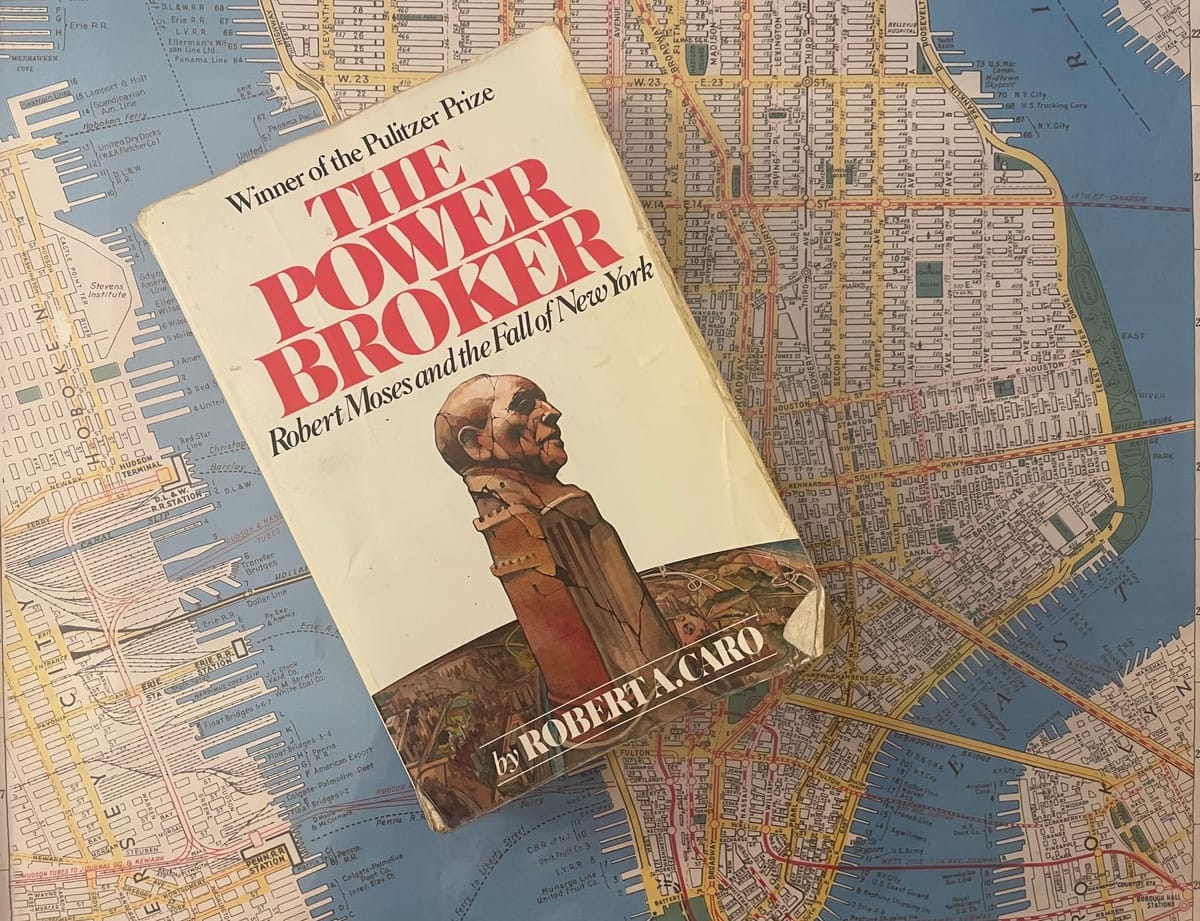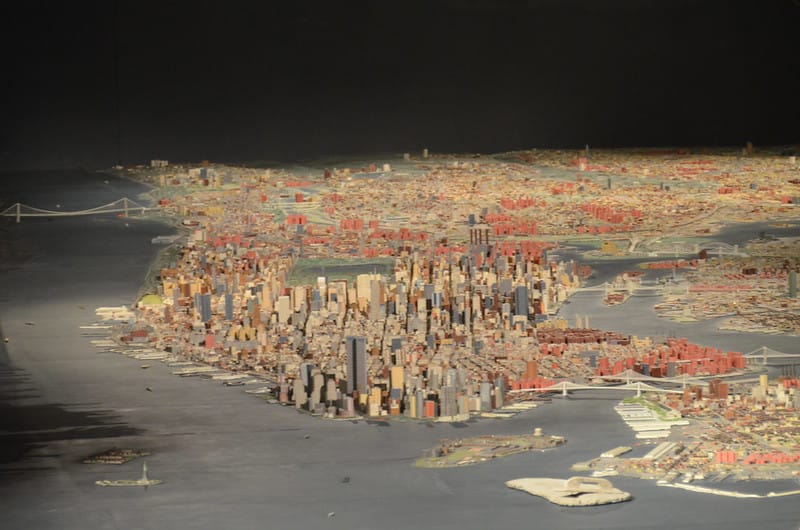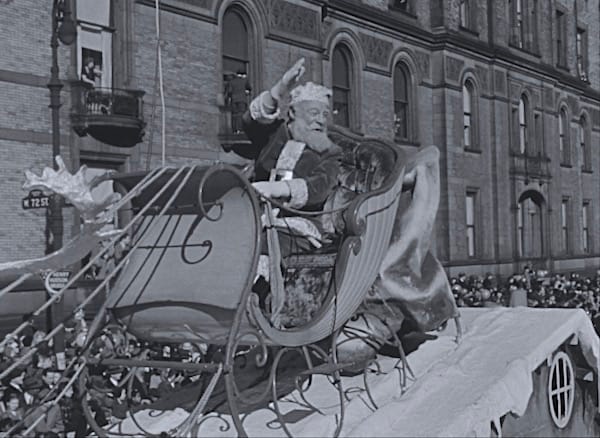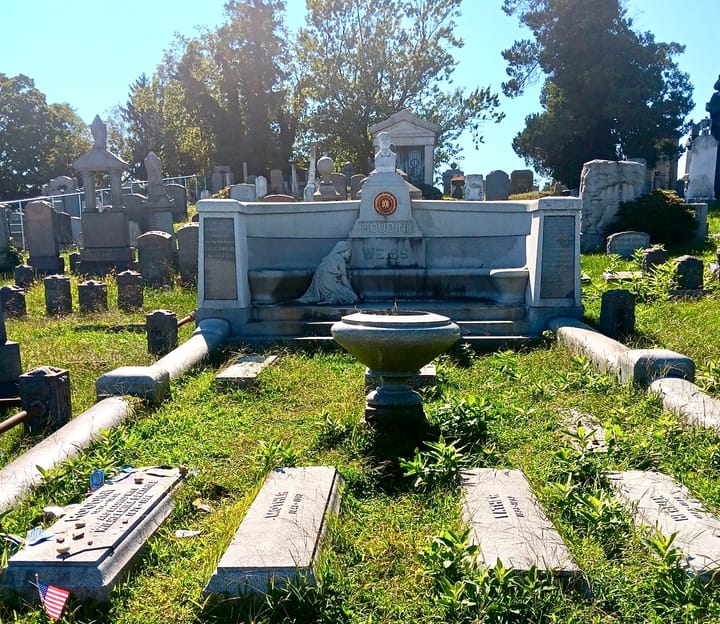2024 is the year of finally reading 'The Power Broker;' here are 4 hacks for doing it
From a podcast read-along to a way to ingest the book while running the entire shoreline of NYC, it's a great year to be reading The Power Broker. Here's why.

The first thing that blew my mind in the very early chapters of Robert Caro’s "The Power Broker," the massive tome that explains how so much in New York came to be, is that Robert Moses, the power broker himself, never actually drove a car.
The fact stopped me in my tracks — well, more accurately, it was the cars that clog up my running route on Eastern Parkway in the morning that stopped me in my tracks. I’ve been listening to "The Power Broker" audiobook on morning runs and facing the consequences of Moses’ city planning policies nearly a century later in real time. The parkway, one of Brooklyn's best stretches of protected pedestrian and bike lanes, is still flummoxed every block or so by gridlocked traffic at intersections. And the guy we blame for it all, the man who wanted to carve up Washington Square Park for a highway, never even drove a car. Worse than designing the city for drivers, Moses designed it for people like him — people who get driven around.
I am, as Dave tells me constantly, shamefully behind in reading all of The Power Broker. Though I have researched its bits, cited its facts, browsed its pages and cursed Robert Moses many times over the past 16 years in the city, I have never sat down and ingested all 1,300 pages. I decided to remedy that this year, finally, though I’m still not technically "reading" it.
Why does any of this matter? Reading the book is a duty every New Yorker should embrace because it explains how so much of the city’s development, roads, bridges, neighborhood displacement, parks construction and suburb-boosting policies were not the natural entropy of a city’s growth, but rather the specific machinations of one guy. And that guy never held elected office but wielded unfathomable influence in decades of work across multiple state and city administrations. He’s a complicated person, not as evil as some people think but more sinister in his triumphs than most people know, which is why you gotta read the book. With congestion pricing coming soon to attempt to undo some of his work, it's important to see how we got into this situation in the first place.
And it happens to be a great time to read "The Power Broker" right now: a popular podcast is hosting year-long read-along discussion, and the audiobook was recently made available on Spotify.
Below, I’ll lay out four ways to ingest the book that is the Rosetta stone for all of New York’s modern problems, so you can read it and hex Robert Moses with full intellectual vigor. Like "Infinite Jest," it’s a marathon, endurance test of a book that people have strategies for reading; unlike "Infinite Jest," it’s a book people actually say was worth the time afterwards.
1. Listen along with "99 Percent Invisible"
Reading a massive book is always a little easier with a book club, or at least someone in your ear breaking down the hundreds of pages you just read to make sure you didn’t miss the big things. Last week, the podcast "99 Percent Invisible" launched a year-long read-along project, covering five chapters of the book every week through the end of the year (five chapters is usually about 100 pages, so it’s doable). You could only listen to the podcast as a SparkNotes version of the book, but then Dave will yell at you that you didn’t actually read it.
Here’s their schedule:
“99 Percent Invisible,” if you don’t know it, is a delightful podcast about the hidden design elements that shape our world. You can learn a lot about the history of cities and New York in general through it, including an episode on the famed rivalry between the New York Public Library and the author of "Goodnight Moon."
To kick off the series’ first episode, host Roman Mars booked the best guest you could get: author Robert Caro himself, who says his editors told him no one wants to read a book about an obscure New York city official, an all-time case of the haters absolutely biffing it. But the book isn't just about one guy, it's about the people in the city he had to move out of his way.
"If you're going to write about political power, the power that affects people's lives, if you want the book to be honest you can't just write about the guys who wield power," Caro said on the podcast. "You have to write about the people on whom the power is wielded."
To preview the series last month, the pod interviewed one Caro superfan to hype up both the author and the effort of reading the book: Conan O’Brien. O’Brien, who himself has contributed one of the major pieces of discourse on urbanism and transit, talked about why Caro’s slow, methodical, exhaustive reporting should be appreciated today.
"Robert Caro is the closest thing to, like, a geological formation," O'Brien said on the episode. "His work — his body of work — feels like we’re watching this eruption of lava and moving of tectonic plates that’s going to build something. And it’s going to last as long as civilization lasts, which is at least another 40 years."
O’Brien is a real Caro sicko, and tells stories of getting into a screaming discussion with his friend in a nice restaurant over Caro’s biography of Lyndon Johnson, which is the kind of thing I always assumed one does with a Harvard education. But his love of the work Caro puts into his books is a strong endorsement of why it’s worth your time.
"I would say you should read 'The Power Broker’ because you will save so much money on your satellite or streaming service. You will be enveloped by this incredible story," he said. "It’s riveting, and it’s powerful. And when you’re done, you’ll realize that you didn’t watch 'The Golden Bachelor' or any of these other shows that are robbing you of your life essence. And you’ll have saved some money and some valuable time, and you’ll be a better person."

2. Listen to it while running the entire coastline of New York City
Carrying a giant book around the city is not the easiest thing, even if the subway is the most ideal place to both read any book and read a book specifically about why subway service stinks sometimes. But last year, Spotify got into the audiobook game, adding thousands of titles available with a premium subscription, including all 66 hours of "The Power Broker." And lo, a plan formed in my brain: rather than read the book, or listen to it in chunks between Spotify’s podcasts of sitcom actors talking about the sitcoms they were on with other sitcom actors, I would use it to motivate my ass to get out and run.
This became my new project: without any specific race to train for, I would train only to refine my dislike for a long-dead man, every mile on the car-filled streets he enabled acting as a whetting stone to refine my anger into a sharp point of urbanist outrage.
So with urban planning on the brain, this led me to wonder exactly how much of the city you could run while listening to the book. The audiobook is 66 hours long; at the gentleperson’s pace of 10 minutes a mile (or at least the over-40 gentleperson’s), this works out to 396 running miles. That's about the distance it takes to run from Brooklyn through Long Island and out to Montauk about three times, which is plenty of time to examine the highways and beach parking lots that Moses built (and it’s also easier than taking a bus out to Jones Beach, which you can’t do, in part thanks to Moses).
That’s not a very satisfying run to be honest, so here’s another number: 520 miles, the length of the entire coastline of New York City. To run the entire length of the coastline of the city while listening to all of "The Power Broker," you’d have to hit about a 7.6 minute per mile pace, which is very doable. Not for me, to be clear, I will not be doing that. But if you are really cooking, and fueled by a white-hot hatred for lack of public transit going to Long Island beaches, you could do it, and then with that pace you should probably enter a half marathon or something next year too.
3. Just read the whole heavy thing, it is your penance
Dave Colon, lover of lugging printed materials, has this to say:
One thing you could do is just read "The Power Broker." Like just a book you spend time reading at your own pace, you can bring it places with you too. On the subway, on an intercity bus, to the beach. I did all that. "But it's a big book!" I can hear you throwing up your hands and saying. And to that I say: so what?
You could bring "The Power Broker" to the beach, I did it. You could borrow your friend's copy for five years, I did that too. It's not illegal. And then when one of your friends tells you he's listening to "The Power Broker" on Spotify you can say "You didn't read it. I read 'The Power Broker.' "
(Also, Unlike Tim’s clout chasing suggestion, some of us read and like "Infinite Jest" too.)
Bonus: Watch Dave call Robert Moses a "famous effective jerk" while interviewing beach babes at Jacob Riis Park in 2015, with a guest appearance from the great Wild Yaks.
4. Cut my book into pieces (this is your last resort)
Chopping up books up is a sacrilege akin to scooping out your bagel, but in the case of the massive “Power Broker,” an exception is OK (do not, obviously, do this with a library book).
Groove contributor Hannah Frishberg tried this years ago, cutting the book into fifths, about 240 pages each, to carry around with her. Reddit has some advice on the best way to actually cut up your book (use a razor blade).
"I still did not read the damn thing," Frishberg reports.
But now you have lots of options to read the damn thing this year.




Comments ()